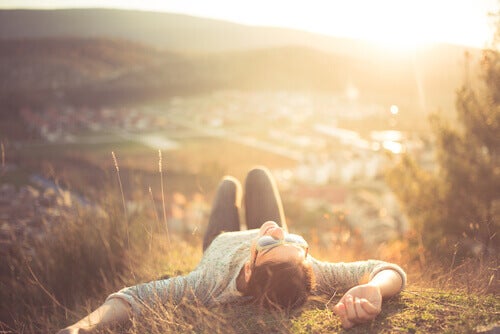Are there days that we are in? We just want to go home and read a good book, take a bubble bath or have a drink with friends, we do this to relax and disconnect, when we are calmer we free ourselves from problems and feel better, right?
In today’s society, full of obligations and tasks to be fulfilled, it is necessary to devote time to our relaxation, it is great to be able to disconnect from the means mentioned above, but the situations we said at the beginning are more of a distraction than a method of relaxation in itself. Let’s see what it really is!
- The first thing to keep in mind is what we said at the beginning: walking.
- Spending time with loved ones.
- Watching a movie.
- Doing crossword puzzles.
- Etc.
- Are not relaxation techniques.
- It is true that.
- In general.
- Rule.
- All this helps us to disconnect from the problems and concerns that we have.
This is because all of this helps us focus our attention on something else and distract us from what causes us anxiety, but it doesn’t necessarily relax us, somehow we stay active in these activities, while the goal of relaxation is to relax. physiologically disable, that is, to bring our body to a state of rest.
Thus, as Herbert Benson points out, relaxation is a physical state of deep rest that produces changes in the emotional and physiological response to stress in the face of the combat-leak response, that is, it serves to decrease the activation produced by the stress process or certain states, such as anxiety. To relax we need to control the activation of the body.
Emotions are the answers our body generates when changes occur around us, so that we can better adapt to them, in this way emotions manifest themselves through three systems:
These systems are complementary to each other, that is, changes in one will produce changes in the other, so that the emotion regulates, so the deactivation of the physiological system will lead to the deactivation of the motor and subjective systems.
In general, increasing activation levels in the body is a useful response to address external demands, which helps us overcome difficult situations. When this activation appears in conditions where there is no real need outside or in a very intense, lasting or repeated way, it has adverse effects on our health.
Relaxation, when looking otherwise, helps us manage anxiety, it has also been shown to be suitable for treating insomnia, sexual dysfunctions, chronic pains, tics, being a very important resource to manage stress in the day to day, prevent disorders and improve the quality of life, for this it is necessary to take into account the requirements of the situation , as well as the cognitive (our thoughts) and behavioral aspects that trigger activation.
It has been shown that by reducing the activation of the body there are benefits over the subjective system, increasing the feeling of calm and tranquility, as well as peace and well-being, this helps us to redirect attention, to have greater self-esteem. control and know the bodily sensations associated with the different emotions, in this way we will be able to regulate them better and see how the anxiety responses will gradually decrease.
Some of you may think: all right, you’ve convinced me of the benefits of relaxation, but I find it hard to relax, what can I do?First, don’t despair!Is there anyone who is able to run 20 kilometers without prior training?No rights? The same goes for relaxation.
It is necessary to practice, practice and practice every day, this is the most important factor in the effectiveness of relaxation, but it is not only that, it is good to take more into account, is the truth that?Leave your mind empty? So we must focus our attention on a constant stimulus, like our breathing.
In addition, you should let go without worrying about your health, it is very important, especially when we start practicing relaxation, choose the time of day and the place where we will practice, avoiding distractions and interruptions. It is also important to be in a comfortable position.
The purpose of practicing relaxation is that we use it in situations that cause us discomfort. For example, if we notice that we are nervous at work, the idea is that we can disconnect and continue with some other activity. This is relevant. The point of relaxation is not to fall asleep, it is simply to rest and disconnect to perform another task.
To generalize training it is necessary to do it gradually, first we will start training in a calm and calm environment, once we have it under control we must use relaxation in situations that make us more and more nervous. Let’s start with those who don’t generate a lot of anxiety and increase their level.
Relaxation is therefore a skill that can be acquired and improved, as soon as we are able to generalize its use we can put it into practice in situations that make us very uncomfortable, in this way we will have a resource that gives us peace of mind and helps us to deal with unpleasant situations that we would otherwise avoid. Practice!
Images courtesy of Ryan McGuire.

